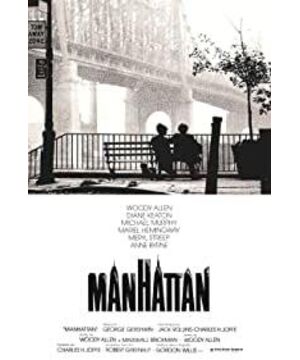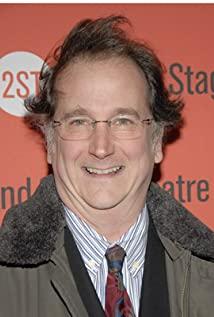"Manhattan"
Woody Allen himself is not very fond of "Manhattan", he has no confidence in "Manhattan". After the film was made, Woody even wanted to help United Artists (the film investor) make another film for free in order to prevent the film from being released. Woody took the first vacation of his career to take advantage of the film's release in France.
But "Manhattan" made an unexpected $40 million at the box office. After the film was released, the crowd was empty, and the line for buying tickets even extended to the next block. The film also became Woody Allen's highest-grossing film to date.
Although Woody Allen doesn't say why he's dissatisfied with the movie, I understand him very well, and I'm also not a big fan of Manhattan. The movie almost became a knock-off of the last dull and failed movie, "Inside My Heart". "Manhattan" doesn't have the fun of "Annie Hall," but it somehow avoids the terrible seriousness of "Inside My Heart." Shot in black-and-white widescreen photography, the movie just seems to show Woody's love for the city of New York and the love story that happens but is lost in the city. Yes, the core soul of this story sounds the same as "Annie Hall". I think the most uncomfortable and disliked thing about "Manhattan" for Woody is that it's so similar to "Annie Hall", but it lacks the fun of "Annie Hall."
Woody was a TV comedian in "Annie Hall" and a TV writer in "Manhattan"; he was divorced twice in "Annie Hall" and in "Manhattan"; in "Manhattan" In Annie Hall he was in a relationship with Diane Keaton, in Manhattan as well; in Annie Hall he cheated, in Manhattan as well. This small man in a tawny suit and insecure about women is no different in Manhattan from his previous characters. Woody's long shot of running through the city at the end of the film is so similar to the long shot at the end of "The Four Hundred Blows" in 1959. Everything. . . . . . "Manhattan" is so lacking in its inspiring indie sparkle. It looks like a simple, pretty soap opera, but Woody Allen and I may have forgotten that audiences like boring soap operas the most, and maybe that's why Manhattan is a big hit in America. It belongs to Woody Allen, who loves New York, and to the people there.
It is worth noting that Woody once said that "artists are selfish and it is difficult to think about others". In the movie, Manhattan's upper-class intellectuals perhaps amply demonstrate this. Woody maintains a relationship with his young girlfriend Hemingway, but changes his mind, falls in love with Keaton, and when Keaton leaves, he goes to save his little girlfriend Hemingway. Woody had sent his girlfriend to England and now tried to save her to stay with him. Woody's ex-wife, despite Woody's strong objections, wrote his smeared image into her book and published it. Diane Keaton, as a third party in love, just got out of this bad relationship and fell in love with Woody, and soon got together with a previously married man. The married man got rid of the mistress Diane Keaton, and after a period of time, he couldn't help but find the mistress Diane Keaton alone to rekindle his old love. The only person in the whole film who has a positive attitude is a 17-year-old adolescent girl - Woody's little girlfriend Hemingway. She loved Woody from start to finish and encouraged him to believe in others and in love.
Artists are selfish. That's the only point I remember from the movie Manhattan. The atmosphere is dull and the characters repetitive, everything Woody Allen does in Manhattan seems unimproved, and of course, the photography is a little bit prettier.
View more about Manhattan reviews











